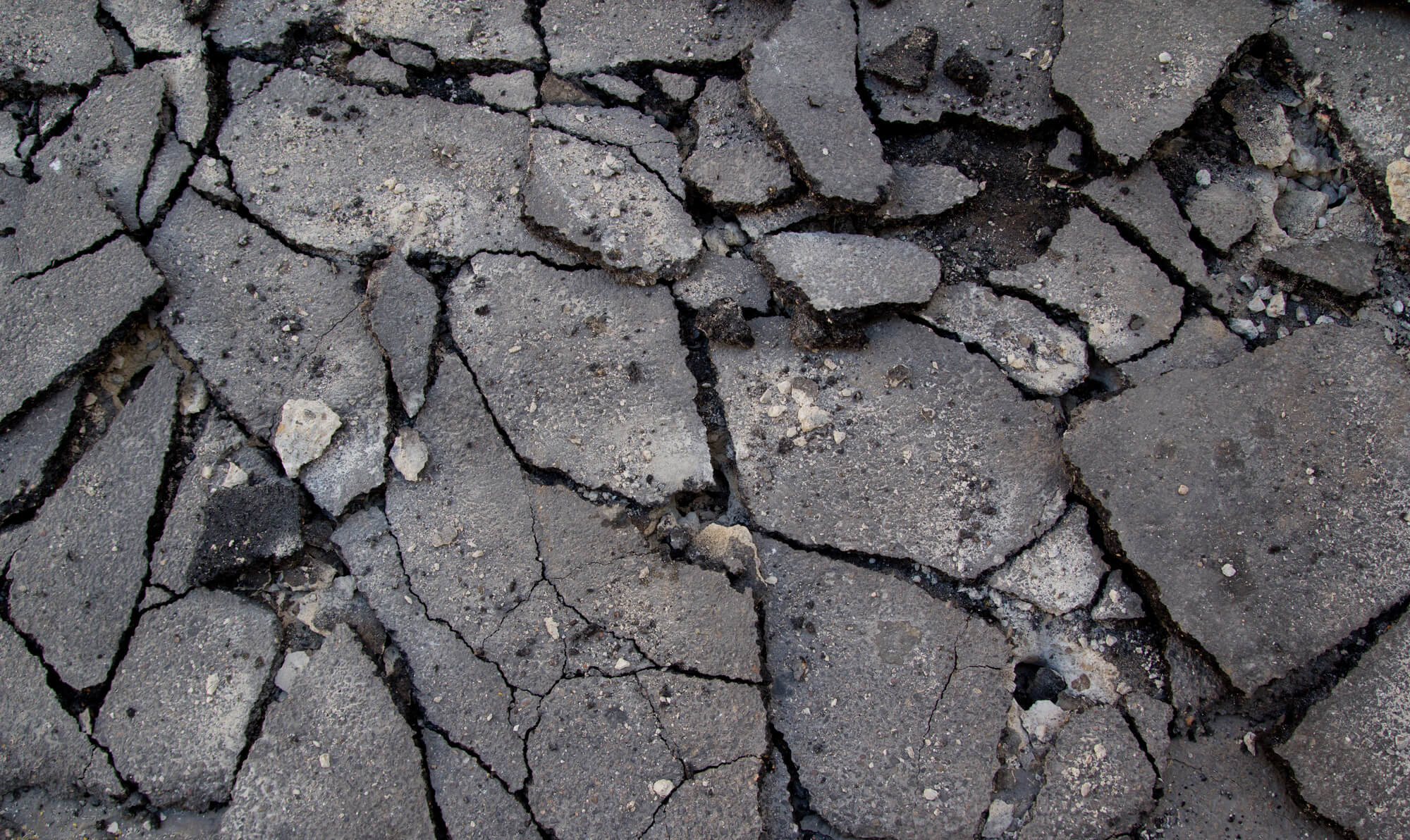
17 Sep What is Asphalt Recycling?
What is asphalt recycling?
First and foremost, prior to understanding how asphalt recycling reduces costs, it is important to understand asphalt recycling.
Asphalt recycling starts with recycled asphalt, which contains reprocessed pavement. According to the Federal Highway Administration, reclaimed asphalt (otherwise known as RAP) starts with old, broken or damaged asphalt.
“Reclaimed asphalt pavement (RAP) describes removed and/or reprocessed pavement materials containing asphalt and aggregates. These materials are generated when asphalt pavements are removed for reconstruction, resurfacing, or to obtain access to buried utilities. When properly crushed and screened, RAP consists of high-quality, well-graded aggregates coated by asphalt cement.”
Essentially, asphalt recycling repurposes RAP and allows towns, cities, municipalities and other organizations requiring large asphalt to reuse their existing asphalt into new projects. Plus, asphalt recycling follows the standard reduce, reuse and recycle movement.
Is reclaimed asphalt in-demand?
Yes.
In fact, asphalt remains the most recycled product in North America. According to the National Asphalt Pavement Association and an important note for construction professionals:
“since most reclaimed asphalt is reused or recycled, asphalt pavement is recycled more than any other material and its use is growing.”
Additionally, the U.S. Environmental Protection Agency and Federal Highway Administration notes:
“about 80 million tons of asphalt pavement is reclaimed each year, and nearly 100 percent of that total is recycled.”
Furthermore, reclaimed asphalt remains in high demand due to shifting local and state regulations. For example, many states updated policies after further evaluation of the durability of RAP mixes compared to virgin asphalt. Plus, with additional usage, municipalities and construction companies increasingly realize cost savings.
Why is asphalt recycling growing?
Asphalt recycling leverages old asphalt and the market continues growing for a few simple reasons. Recycled asphalt provides a better product at a lower cost!
Additionally, as a recycled product, municipalities and companies deliver an environmentally friendly result, which also meets and possibly exceeds existing quality standards. The Federal Highway Administration helped jumpstart asphalt recycling through a policy instituted in 2002.
As Recycle Nation notes, although the product started with the intention of helping the environment, recycled asphalt provided multiple benefits.
“Frederick G. Wright Jr., the agency’s executive director, pointed out that part of the FHWA’s mission minimizes their impact on the environment. Evidence shows that using recycling content in asphalt actually created a stronger product, which allows them to meet another part of their mission: creating safe, lasting roads for Americans.
Additionally, the FHWA realized that recycling asphalt could save them money, which could in turn give them more funds to repair existing roads and build new ones. This policy reflects the reasons recycling asphalt makes sense for everyone. The heavy, petroleum-based material takes up a lot of space in landfills and will never biodegrade. Mixing Reclaimed Asphalt Paving (RAP) with virgin asphalt makes the resulting product stronger than one made with entirely new materials. Putting some recycled material in the mix reduced the need for newly mined aggregate, which is always a good thing. Mining is water-intensive and tough on the land, so it is best to avoid doing it whenever possible. Throw in the carbon emissions that come from transporting material (especially very heavy rock) to a manufacturing plant and the environmental impact of the aggregate can be quite high.
Using recycled asphalt also saves people money. As petroleum prices increase, so does the cost of asphalt. Using some recycled materials decreases the manufacturing cost, which is good whether you are a taxpayer funding a new highway or a homeowner building a new driveway.”
How does reclaimed asphalt reduce costs?
As a result of the FHA initiatives, local towns and municipalities increasingly leverage reclaimed asphalt for repairs and construction projects. The use of reclaimed asphalt saves taxpayers money!
“Estimates show that recycling of asphalt pavements saves the American taxpayer more than $2.5 billion per year. It also saves thousands of acre-feet of landfill space each year.”
Listen to the Mayor of Milford, CT discuss how the Bagela asphalt recycler helps the town reduce costs for the municipality.
However, reclaimed asphalt helps more than just local municipalities and towns. Reclaimed asphalt offers numerous benefits to construction companies. For example, with the Bagela Asphalt Recycler, a local construction company in Colorado drove immediate results.
Leeder Construction Case Study
Leeder Construction primarily focuses on asphalt paving and asphalt maintenance. However, recently the company moved into recycling asphalt and using the recycled product. As a result, they dramatically decreased their costs, which translated into savings for their customers.
“With the help of the Bagela, we were able to operate year around and had our material costs drop by 25 percent. Forty percent of the product that laid in 2013 was recycled asphalt versus virgin asphalt. We are very happy with the Bagela’s production rates. We are enjoying the flexibility of being able to reduce and have a ready supply of product when we need it and not being at the mercy of the asphalt plants. The economic impact on our company was immediate. Our overall profitability increased by 12 percent. The Bagela was critical to us being able to maintain profitability during the economic downturn.”
Interested in learning more? Contact Pavement Recyclers today



Sorry, the comment form is closed at this time.